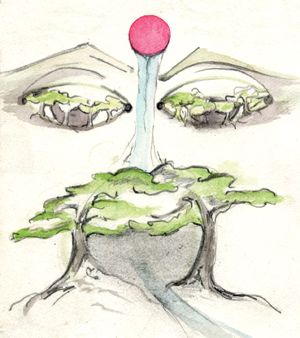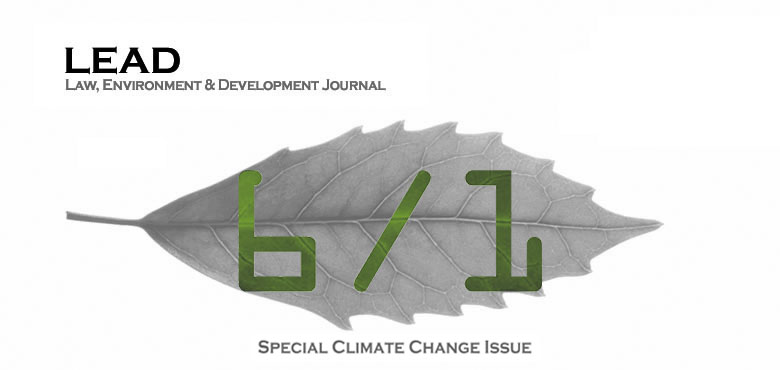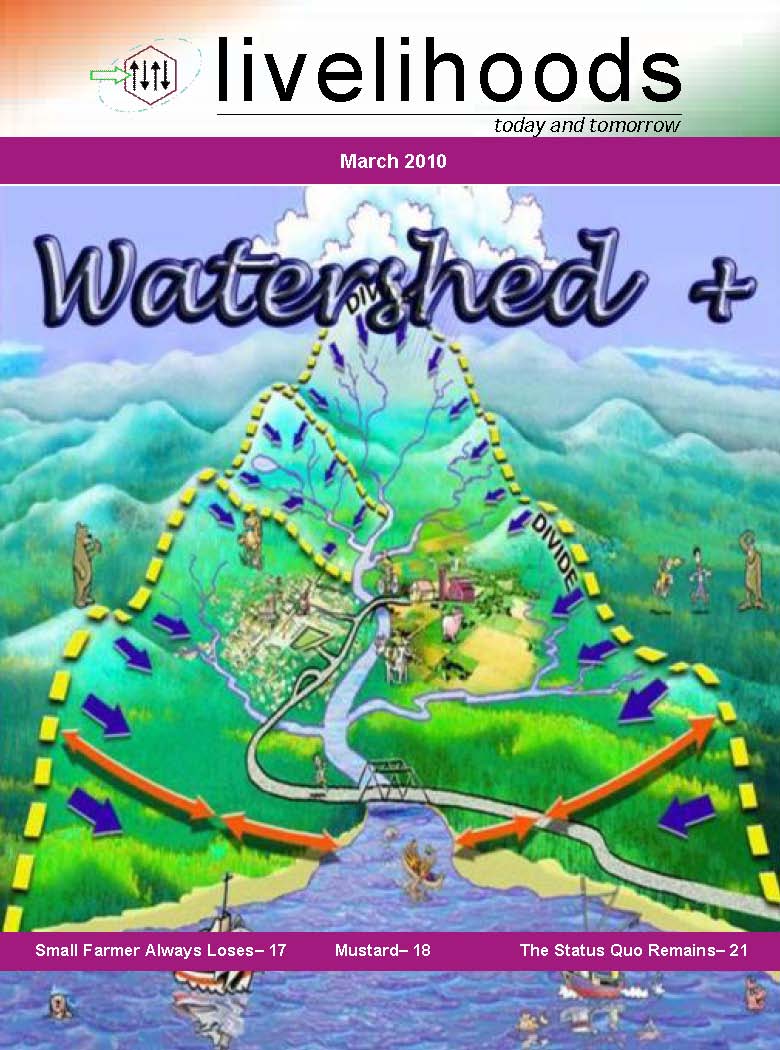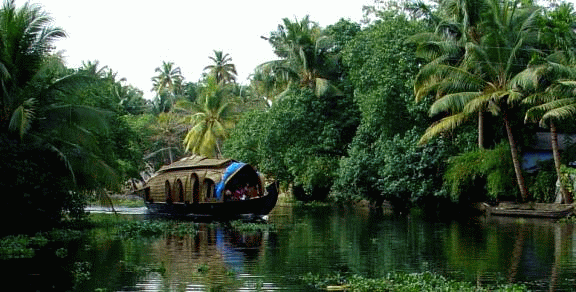/regions/political
Political
National seminar on water security - Call for papers
Posted on 07 Jun, 2010 01:16 PMOrganizer: Water and Food Equitable Distribution Organisation (WEDO)
Topics:
- Making more surface water available
- Sustainable and enduring solutions for water
Venue: Henry Maudslay Hall, Anna University, Chennai
Description:
WEDO ( Water and Food Equitable Distribution Organisation) is a unique Initiative of professionals and experts with hands-on experience, a Think-tank of the free enterprise with lateral thinking to design and evolve projects on a scientific and technological basis to provide acceptable engineering solutions to be proposed to the nation: Models, designs and plans for Production, storage and distribution of vital resources in India.
In remembrance of water: How a conglomeration of mining companies, politicians and real estate developers are endangering the vast aquifers that give Goans their water
Posted on 07 Jun, 2010 01:00 PM Author: Hartman de Souza Art: Jessica Schnabel Content Courtesy: Himal Southasian
Author: Hartman de Souza Art: Jessica Schnabel Content Courtesy: Himal Southasian
Where there is water, there is probably ore beneath.
Having trekked several times to Paikdev’s spring to gulp water pouring out of the moss-covered iron mouth, one would think the mysteries of the journey would fade. But, if anything, they have become more poignant – sitting here at this shrine to the snake deity of the Velip community in the village of Maina, in Goa’s Quepem District. It is here, amidst thousands of hectares of rolling forests, in the foothills of the Western Ghats, home to countless perennial springs and streams, wildlife and more, that a strange conglomeration of mining companies, politicians and real-estate developers are sharpening their collective sword. These activities were already afoot a year ago, with mining operations systematically destroying forests, because, as the government in Panjim stated at the time, the iron ore was needed by New Delhi to keep its nine-percent growth rate on track. This year, the message is no different.
Resource guide on mainstreaming gender in water management for India - Regional language guide hardcopies and CDs available from CEE Lucknow
Posted on 07 Jun, 2010 12:56 PMCentre for Environment Education (CEE), Northern regional office based in Lucknow has been working with Gender and Water Alliance (GWA) for trans-adapting the resource guide on ‘Mainstreaming Gender in Water Management’ in Hindi for India as part of the South Asia version. The Resource guide was first published by the United Nations Development Programme (UNDP) in 2003. This is the second edition of the Resource Guide on Mainstreaming Gender in Water Management of August 2006.
LEAD journal special issue on climate change
Posted on 07 Jun, 2010 08:33 AM The Law, Environment and Development Journal published by School of Oriental and African Studies and International Environmental Law Research Centre, has brought out a special issue on Climate Change.
The Law, Environment and Development Journal published by School of Oriental and African Studies and International Environmental Law Research Centre, has brought out a special issue on Climate Change.
Livelihoods magazine special issue on watersheds
Posted on 07 Jun, 2010 08:14 AM A special issue of the Livelihoods magazine (March 2010) brought out by the Akshara Network for Development Support Services, on Watersheds+.
A special issue of the Livelihoods magazine (March 2010) brought out by the Akshara Network for Development Support Services, on Watersheds+.
Increasing productivity of dry lands is possible through soil and moisture conservation (SMC) efforts results in growth led by increases in the farm output. Separate efforts are required to include the land-less and the vulnerable in this growth, so that they also realize the benefits of improved food security, increased employment and diversification of livelihoods. Such activities are known as ‘Watershed Plus’ interventions, and ‘livelihoods’ explores these activities.
Community initiative for efficient management of rural water supply in Assam
Posted on 06 Jun, 2010 10:18 PMDrinking Water Supply in rural areas of Assam ( India ) is managed by the Public Health Engineering Department (PHED), Government of Assam and the challenge is indeed enormous and achieving the targets requires well planned and strongly determined strategies and approach. Government has already formulated the necessary strategy to ensure sustained supply of safe drinking water in rural areas. However for achieving the desired end results from the Government initiatives, the community needs to be mobilized to own and sustain these programmes and to become an active partner in their implementation. For such a participatory demand driven approach, necessary awareness generation amongst the Community to realize the need for “total water security” and its impact on reduction of water borne diseases, is highly warranted.
National Water Mission under National Action Plan on Climate Change: Revised Comprehensive Mission Documents - Ministry of Water Resources (2009)
Posted on 05 Jun, 2010 11:46 PMThe National Water Mission (NWM), under the aegis of the Ministry of Water Resources, is one of the eight missions being constituted under the National Action Plan for Climate Change (NAPCC). The NAPCC was launched by the Prime Minister in 2009 as a nation-wide effort to tackle climate change.
Urban Development Policy 2009 - Department of Urban Development (Government of Karnataka)
Posted on 05 Jun, 2010 04:20 PMThe Urban Development Policy, Karnataka has been developed, by the Department of Urban Development (Government of Karnataka), as a response to the challenges that are being faced by the state due to rapid urbanisation leading to:
- An increase in population in urban areas due to migration
- Increase in the number of poor residents in urban areas
- Infrastructural shortfall on several fronts
- Shortage of resources
- The challenge of ensuring the basic welfare of the poor in urban areas
- The increasing need for strengthening governance, planning and administration
Vembanad Fish Count - Report of the Participatory Fish Resources Surveys of Vembanad Lake (Kerala) done in 2008 and 2009 by ATREE
Posted on 03 Jun, 2010 06:23 PM The Vembanad estuarine system, the largest of its kind on the west coast of India is known to be abundantly enriched with diverse fishery resources, providing feeding, spawning and rearing areas for a very large proportion of commercial (fin) fish and shellfish. However, ecosystem health of the Vembanad wetlands is alarmingly declining due to a variety of reasons - obstruction of river courses, sand mining & habitat destruction, loss of riparian canopy cover, encroachment, pollution and unethical fishing practices. Reduced summer flow due to drying up of rivers and pollution hazards from agro-chemicals and sewage also lead to mass mortality of fishes. Depletion of fishery resources has changed this ‘inland fish basket’ to an ‘inland wastebasket’, driving the fisherfolk, the primary stakeholders of the lake into a livelihood crisis.
The Vembanad estuarine system, the largest of its kind on the west coast of India is known to be abundantly enriched with diverse fishery resources, providing feeding, spawning and rearing areas for a very large proportion of commercial (fin) fish and shellfish. However, ecosystem health of the Vembanad wetlands is alarmingly declining due to a variety of reasons - obstruction of river courses, sand mining & habitat destruction, loss of riparian canopy cover, encroachment, pollution and unethical fishing practices. Reduced summer flow due to drying up of rivers and pollution hazards from agro-chemicals and sewage also lead to mass mortality of fishes. Depletion of fishery resources has changed this ‘inland fish basket’ to an ‘inland wastebasket’, driving the fisherfolk, the primary stakeholders of the lake into a livelihood crisis.
Genetic engineering in food and farming, South Against Genetic Engineering, Warangal
Posted on 02 Jun, 2010 05:09 PMOrganizers:
- South Against Genetic Engineering
- Bangalore Film Society
- Era Organics
- ICRA
- Pristine Organics
- Bhoomi Network
- Green Foundation
- Svaraj
Venue: Ashirvad, No. 30 St. Mark's Road Cross, Opp. State Bank of India, Bangalore 560 001
